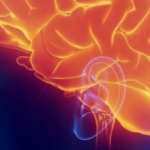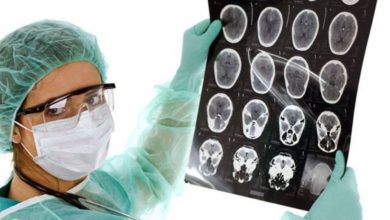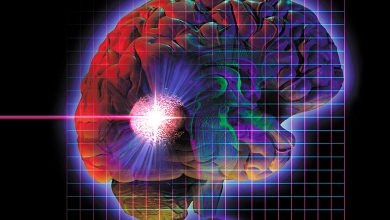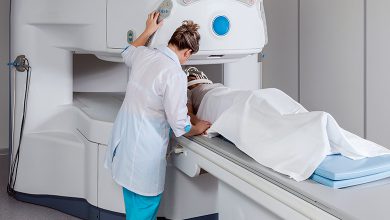Blood test for brain tumor
The content of the article
Depending on the type of formation and the severity of the disease, a blood test has different diagnostic value.
To confirm the malignant nature of the tumor, a blood test is often performed for the presence of tumor markers. Their presence makes it possible to judge brain cancer - a dangerous neoplasm that destroys healthy organ tissue. This type of tumor consists of many pathologically altered brain cells formed as a result of uncontrolled division. Early diagnosis of the disease allows achieving effective results in the treatment process and achieving remission.
Types of tumors
The brain is the main organ of the human central nervous system. It has a complex structure, which is based on a huge number of interconnected nerve cells and their processes. Among brain diseases, the most serious are neoplasms.
There are two groups of tumors:
- benign;
- malignant.
The difference between malignant and benign tumors is the risk of metastasis, which increases in the later stages of the disease. Metastases are accumulations of tumor cells that are carried through blood vessels along with blood to other organs, affecting them and forming malignant foci in healthy tissues. One way to determine the nature of a brain tumor is to test the blood for tumor markers. The location and growth rate of the tumor are also of diagnostic importance.
Factors in the development of brain cancer
The tumor is localized in the tissues of the organ or its membranes. As a result of pathological changes occurring in brain cells, a mechanism of chaotic division of damaged cells is triggered, which leads to the emergence of a rapidly growing malignant tumor.
Risk factors contributing to the development of the disease include:
- the age of the person (according to statistics, cancer most often develops in people over 45 years of age);
- radiation exposure (frequent exposure to X-ray equipment, exposure to a man-made disaster);
- harmful working conditions (regular contact with aggressive substances when working in the oil refining industry, chemical industry);
- hereditary predisposition (cases of brain cancer in direct relatives);
- bad habits (smoking, alcohol abuse);
- unfavorable environmental situation;
- past infectious diseases or traumatic brain injuries.
The causes of brain cancer are not fully understood. Identified factors that have an adverse effect on the health of the organ are considered only to contribute to the occurrence of the disease. No direct relationship has been found between them and brain cancer. If you have one of the risk factors, it is recommended to take a blood test used for a brain tumor; your doctor will tell you which one.
Symptoms of brain cancer
The first manifestations of an oncological formation appear as it increases in size and largely depend on its location. The growing tumor compresses the nerve endings, which provokes the development of primary focal symptoms. As the tumor grows, general signs appear associated with impaired blood supply and increased intracranial pressure. Focal symptoms include:
- sensitivity disorder;
- motor disorders (paresis, paralysis);
- problems with speech, hearing or vision;
- increased fatigue;
- impaired coordination of movements;
- memory impairment, decreased attention, absent-mindedness, emotional instability;
- hallucinations.
Among the common symptoms are high-intensity headaches that are constant. The pain syndrome in this case is poorly relieved by taking painkillers. Other signs are nausea and vomiting not associated with meals. When the cerebellum is compressed and the blood supply to the brain tissue deteriorates, dizziness often occurs. If one or more manifestations are detected, it is important to immediately visit a doctor. He will order tests and other examinations to rule out brain cancer. The first signs of a blood test are a change in ESR, a decrease in hemoglobin levels and others.
Diagnosis and treatment of brain cancer
Diagnosis of brain cancer is complicated by the specific location of this type of tumor. The final diagnosis can be made only after a histological examination of the tissues of the formation. The main diagnostic methods used are:
- Magnetic resonance imaging;
- CT scan;
- biopsy – removal of part of the tumor for histological analysis.
At later stages of the disease, tests are carried out for brain cancer to determine changes in the composition of the blood, the presence of specific tumor markers and other indicators.
Once the diagnosis is confirmed, the oncologist selects a treatment strategy for the tumor. It consists of taking medications aimed at eliminating symptoms, as well as ways to combat the tumor itself. These include:
- chemotherapy;
- radiation therapy;
- surgical removal of the formation.
These treatment methods have a systemic effect and can not only successfully stop tumor growth, but also prevent the spread of metastases, and also help destroy foci of metastasis in other organs. Modern possibilities of chemotherapy and radiation provide a chance to get rid of the tumor without the use of radical treatment methods.
Blood test for tumor markers
If brain cancer is suspected, a blood test is sometimes prescribed to check for tumor markers. They are substances that allow one to judge the development of a malignant tumor. With a brain tumor, the level of bioactive substances, hormones and enzymes in the blood increases. By studying tumor markers, the location of the tumor and the stage of its development can be determined.
These include substances produced by affected cells:
- alpha-fetoprotein;
- prostate specific antigen;
- CA 15–3;
- CYFRA 21–1.
A blood test for brain cancer is the most preferred diagnostic method due to the difficulty of performing a biopsy. Despite the absence of known substances specific for brain cancer, testing for tumor markers should not be neglected. Increased levels of some of them in the blood make it possible to accurately diagnose secondary brain cancer resulting from localization. These tests should be taken at the first suspicion of brain cancer. They help identify the location of the tumor. They are carried out to determine the degree of effectiveness of the treatment or to predict the course of the disease.
The main condition for any diagnosis is its timeliness. If you experience any symptoms that may indicate brain cancer, especially if they are persistent, you should consult a doctor as soon as possible. He will prescribe the necessary examinations to find out the cause of the ailment.
Please rate the article:

 (4 ratings, average: 4,50 out of 5)
(4 ratings, average: 4,50 out of 5)



